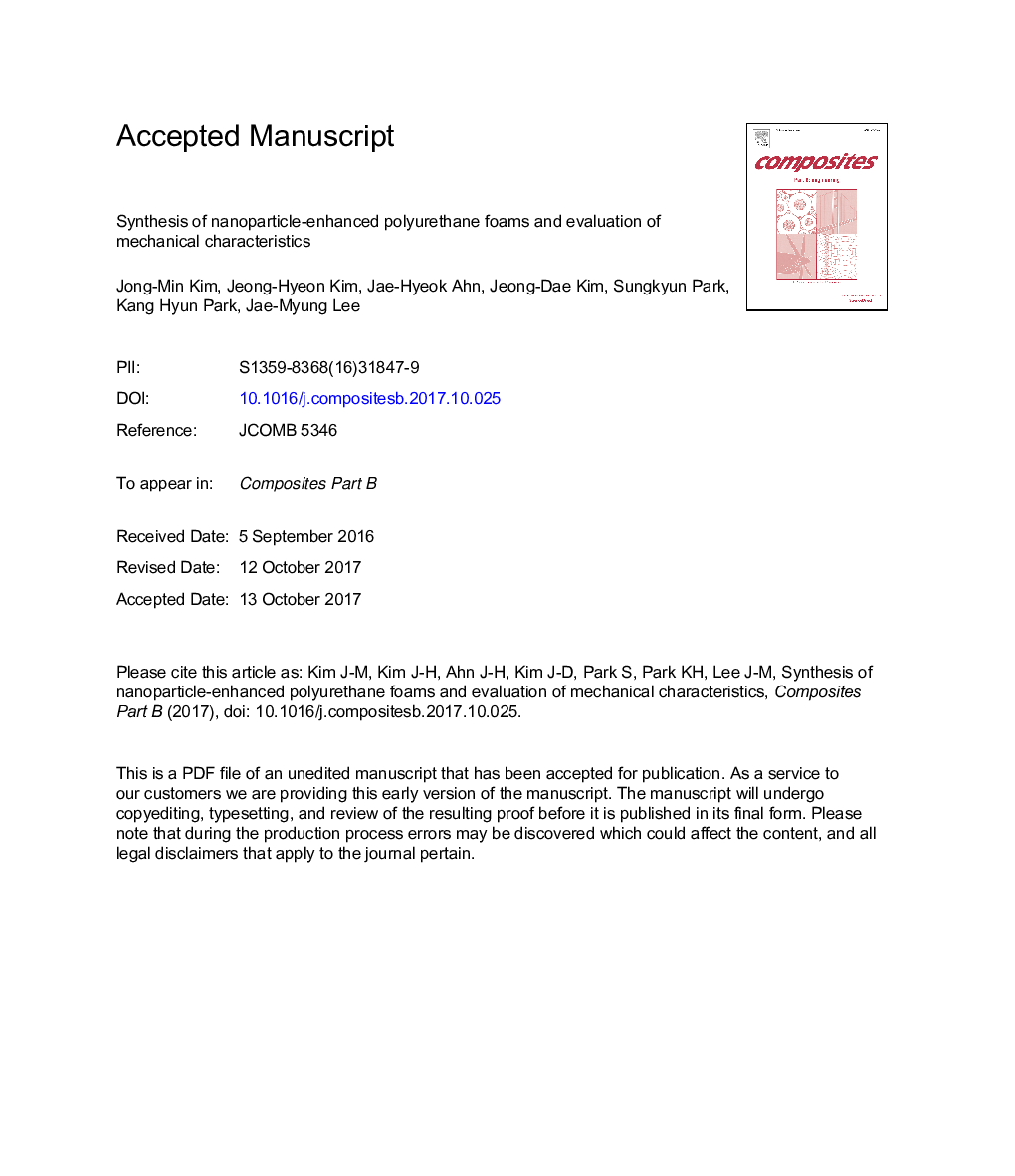| Article ID | Journal | Published Year | Pages | File Type |
|---|---|---|---|---|
| 7212346 | Composites Part B: Engineering | 2018 | 30 Pages |
Abstract
Owing to their many advantageous properties, polyurethane-based insulating materials are suitable for liquefied natural gas carrier (LNGC) cargo containment systems (CCSs). Because an LNGC CCS, which has a 110Â K operating temperature, is exposed to continuous sloshing impact loads from ocean waves, the insulating and mechanical capabilities should be simultaneously secured. However, cracking and failure problems have been consistently reported in shipyards owing to the performance limitations of current insulating materials. Therefore, for the present study, nanoparticle-enhanced polyurethane foams (PUFs) with various contents of graphene oxide (GO) and graphite were synthesized to resolve such industrial problems. A wt%-dependent SEM analysis was then carried out to understand the effects of nanoparticles on the cell morphologies of the developed materials. The mechanical properties were investigated at both ambient and boiling temperatures of LNG (110Â K). In addition, the thermal conductivity of nanoparticle-enhanced PUF was evaluated. Finally, the macroscopic failure characteristics were also determined. The results indicate that the microstructure and mechanical strength are enhanced compared with neat PUFs, with a significant dependence on the weight percent of the nanoparticles.
Keywords
Related Topics
Physical Sciences and Engineering
Engineering
Engineering (General)
Authors
Jong-Min Kim, Jeong-Hyeon Kim, Jae-Hyeok Ahn, Jeong-Dae Kim, Sungkyun Park, Kang Hyun Park, Jae-Myung Lee,
